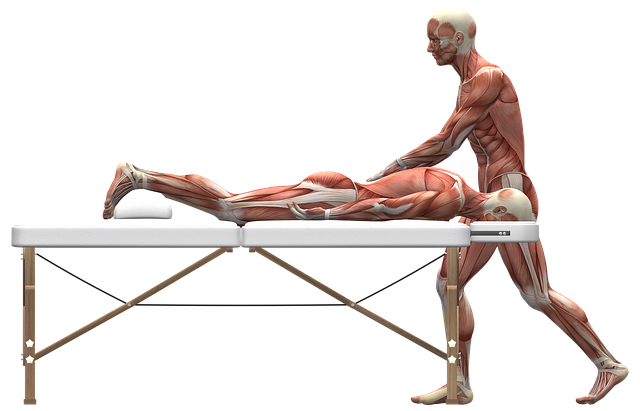Cold plunging, an ancient practice involving brief exposure to icy water, is gaining modern recognition as a powerful tool for managing stress and anxiety. Rooted in Scandinavian customs like sauna bathing and ice swimming, it activates physiological changes in the body, including vasoconstriction, adrenaline release, and endorphin production, leading to pain relief and elevated moods. Scientific studies show that regular cold water immersion can effectively lower stress hormones, reduce anxiety, enhance mental well-being, and offer a natural remedy for relaxation and stress relief. Cold exposure through practices like cold plunges and cold water therapy reduces anxiety, promotes mental health, and enhances overall well-being by stimulating the parasympathetic nervous system and releasing endorphins. Integrating cold plunges into daily routines can foster mental clarity, emotional balance, and resilience against stressors, ultimately promoting relaxation through simple yet effective cold water immersion practices.
In today’s fast-paced world, managing stress and anxiety is paramount for mental well-being. One unexpected yet powerful tool gaining traction is the cold plunge. This ancient practice, now backed by science, offers profound stress relief and anxiety reduction through cold water therapy. From historical usage in traditional healing practices to modern research findings, this article explores the calming effects of cold plunges and provides practical tips for integrating them into daily routines. Discover how a simple immersion in cold water can be a game changer in your mental health journey.
Understanding Cold Plunges and Their Historical Usage for Mental Well-being
Cold plunges, also known as cold water therapy, involve briefly exposing oneself to extremely cold temperatures, typically through immersing or dunking in ice-cold water. This practice has been used for centuries by various cultures around the world not just for physical health but also for its profound mental wellness benefits. Historically, cold water immersion was utilized by ancient Scandinavians for its rejuvenating effects on both body and mind, a tradition still embraced today through practices like sauna bathing and ice swimming.
In modern times, there’s growing scientific interest in the therapeutic potential of cold plunges for stress and anxiety reduction. Cold exposure triggers a series of physiological responses in the body, including constriction of blood vessels and a surge in adrenaline. However, as the body adjusts to the cold shock, it also releases endorphins—natural chemicals that act as painkillers and promote feelings of well-being, contributing to the calming effects of cold plunges. Research suggests that regular cold water immersion can help lower stress hormones, reduce anxiety symptoms, and improve overall mental health.
Scientific Evidence Behind Cold Water Therapy and Stress Reduction
The scientific community has been exploring the therapeutic potential of cold water therapy, particularly its impact on stress and anxiety reduction. Research suggests that exposure to cold water or cold plunges can significantly lower cortisol levels, often referred to as the ‘stress hormone’. This effect is attributed to the body’s natural response to cold, which triggers a release of endorphins, known for their calming and mood-regulating properties.
Studies have shown that regular cold water immersion can reduce symptoms of anxiety and depression, promote better sleep, and enhance overall mental resilience. The calming effects of cold plunges are believed to be linked to the activation of the parasympathetic nervous system, which is responsible for the ‘rest and digest’ functions, ultimately promoting a state of relaxation and stress relief. This natural therapy offers an accessible way to manage mental health, providing an alternative approach to traditional treatments with potentially fewer side effects.
The Mechanisms of Cold Exposure in Lowering Anxiety Levels
The mechanisms behind cold exposure’s ability to lower anxiety levels are multifaceted. When your body is exposed to cold, whether through a cold plunge or cold water therapy, it triggers a cascade of physiological responses. One key effect is the release of norepinephrine, often referred to as noradrenaline, which plays a crucial role in the fight-or-flight response. Interestingly, while norepinephrine can increase stress and anxiety under chronic exposure, acute cold stimulation can actually reduce these feelings by promoting a sense of calm and relaxation.
Additionally, cold water immersion has been shown to stimulate the release of endorphins, natural mood lifters that act as powerful analgesics and stress relievers. This combination of physiological reactions creates a deeply calming effect, making cold plunges and cold water therapy popular tools for managing stress and anxiety in the modern world. The benefits extend beyond physical relaxation; these practices can also enhance mental clarity and foster a profound sense of grounding.
Integrating Cold Plunges into Daily Routines for Optimal Calmness and Relaxation
Integrating cold plunges into your daily routine can significantly enhance your ability to manage stress and anxiety. The practice of cold water therapy, such as immersing yourself in a cold plunge or taking a cold shower, triggers a response in your body that fosters mental clarity and emotional balance. When you expose yourself to cold water, your sympathetic nervous system is stimulated, increasing alertness while simultaneously suppressing the release of cortisol, often referred to as the stress hormone. This dual effect leads to a rapid calming, making it an effective tool for reducing anxiety and promoting relaxation.
Over time, incorporating cold plunges into your morning or evening routine can reinforce a sense of resilience against daily stressors. The calming effects of cold water immersion extend beyond the immediate physical response, influencing your mental state and overall well-being. By adopting this simple yet powerful practice, you can better navigate life’s challenges with a clearer mind and reduced anxiety levels, ultimately enhancing your ability to achieve optimal calmness and relaxation.
Cold plunges, an ancient practice now backed by science, offer a simple yet powerful tool for managing stress and anxiety. By integrating cold water therapy into daily routines, individuals can harness the beneficial effects of cold exposure to promote mental health and achieve optimal calmness. The calming effects of cold plunges, or cold water immersion, have been shown to lower anxiety levels and enhance overall relaxation, making them a compelling game-changer for navigating today’s bustling world.
